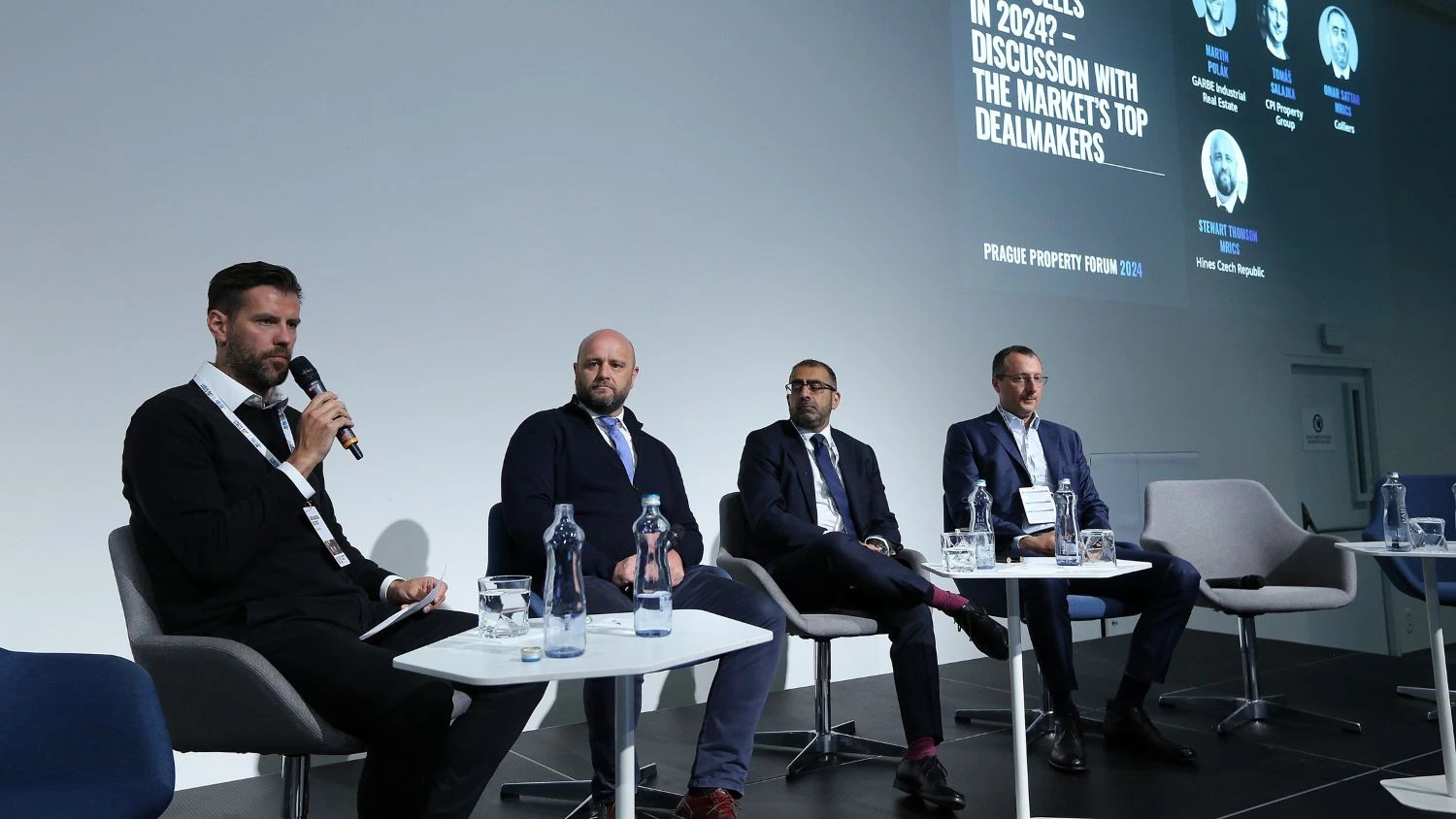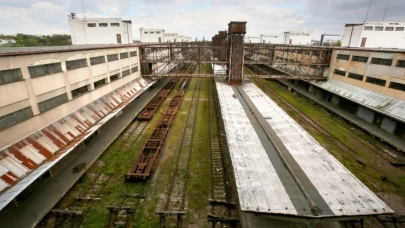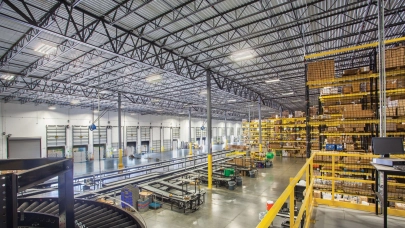
What are the challenges of attracting foreign capital in the Czech real estate market? Is the Czech market overpriced? What about yields, are they accurately projected? And last but not least, is the more expensive land always better? Top Czech dealmakers have discussed these topics during the second panel discussion at Prague Property Forum 2024.
Martin Polák, Managing Director CEE at GARBE Industrial Real Estate, the panel moderator, opened the discussion by pointing out that the expectations of buyers and sellers on the market are different based on his own experience in logistics. „What needs to be changed to fill the gap between these two parties?“ Martin asked.
Omar Sattar, MRICS, Head of Investment Services Czech Republic at Colliers, thinks that the yield figures for industrial assets are slightly theoretical because there is very little transactional evidence. „Currently 5.25% is a quite sharp yield because of the liquidity that protects the Czech market. Deals are not pushed into the market.“ Omar was also convinced that in a market with very few transactions, buyers suffer because there are no options for them to get to the market. „As an owner, unless you have got an alternative place to put capital, you would not sell,“ he explains.
„So whose market is it then? The sellers or the buyers?“ asked Martin. Tomáš Salajka, Director of Acquisitions, Asset Management & Sales at CPI Property Group, suggested that the market belonged more to buyers. „However, I don't think the only matter is that there's a gap between the yield expectations but also that many buyers just don't buy.“ Tomáš also admits: „I think it's also fair to mention that the Czech Republic is in a good position, it is a relatively rich region, especially Prague. Although less capital comes from abroad, local capital is growing more important. And this distinction gives me a positive feeling that it will help in the future. We can see that interest rates are going down in the Czech Republic, they will probably go down soon in Europe. So if capital and financing become cheaper, we should see more activity.“
Stewart Thomson MRICS, Country Head, Hines Czech Republic, shares a similar perspective: „I think there's certainly a sentiment of wanting to invest into your country. But there is still a pricing difference between what the domestic investors will pay against foreign investors.“
Omar Sattar agreed: „I think that's an important distinction. A lot of domestic capital comes from retail domestic funds based on individual professionals investing. That capital tends to be less active. The market is healthy when you have a variety of different capital sources. The active capital, private equity, investment bankers, and foreign funds, are looking for bigger deals, expecting certain KPIs.“ These capital sources often represented by foreign parties considered the Czech Republic as overpriced according to Omar and he claimed: „I can get better deals in Germany and even in Poland.“
Martin Polák suggested that the more expensive asset may be worth it, but Omar did not share the same point of view. Tomáš Salajka confirmed: „There's no reason for anybody to go down with the pricing, there's no pressure.“ As he explained the situation in Poland is different: „The local capital is missing. So there are good opportunities for investors.“ Stewart Thomson added: „Experts from other markets can bring skills and experience. Speaking about the Czech market, it matured massively over the past 20 years. But certain areas have not taken off here yet.“
„The market dictates the price of an asset, no matter if the owner believes he´s got the best building,“ Omar stated. „Can waiting also be an opportunity then? We now see that investors are worried about buying too expensive and too early. They are also worried that they buy too late and too expensive,“ suggested Martin Polák and Tomáš Salajka concluded: „I think if you wait too long, the asset will be more expensive. However, I am strongly positive that next year's yields will be better than today.“



